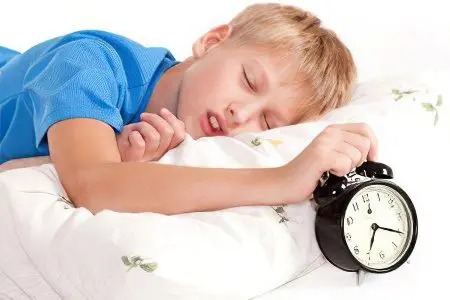Contents

Enuresis is involuntary urination during the day and at night. Normally, the child acquires control over his urination at 4 years. According to medical statistics, from 2 to 30% of children have this pathology. By adolescence, urinary incontinence remains in 4% of children, from 14 to 18 years, approximately 1% of boys and girls suffer from urinary incontinence. In most cases, this is nocturnal enuresis. The problem may remain even after the period of growing up, bringing moral suffering to a mature person.
Enuresis appears selectively, more often boys suffer from it due to the increased tendency of the brain to overexcite. In adolescence, during the period of personality formation, urinary incontinence has a negative impact on the psyche of children. They worry, withdraw into themselves, avoid visiting sports camps and rest homes, and are unable to make long trips.
If a teenager suffering from urinary incontinence lives in a social institution (in a boarding school), he has conflicts with peers, depression may develop, a desire to run away from there. In a family where parents have a negative attitude to such a problem, teenagers are punished, parent-child relations are violated, and negativism is growing.
Forms and causes of enuresis in adolescents

There are primary and secondary enuresis. The primary form of urinary incontinence develops most often according to a family scenario, when relatives of a teenager in a straight line suffered from this pathology. The features of sleep, the type of CNS response to psychological stress, and the production of antidiuretic hormone by the pituitary gland are inherited. The combination of 2-3 adverse factors leads to the fact that from the moment of birth, the child almost never wakes up in a dry bed.
The secondary form is formed when the urination control reflex was formed at one time, but for some reason disintegrated. Most often, negative factors are diseases of the genitourinary system, endocrine disorders (diabetes mellitus).
Causes of bedwetting in teenagers:
Infections of the urinary system when the kidneys and bladder are affected (cystitis, pyelonephritis, pyelitis, nephritis).
Congenital absence of a conditioned reflex to control urination.
Genetic predisposition inherited from relatives in a straight line.
Injuries of the lumbar spine, pelvic organs.
Prolonged stressful situation, crisis of adolescence.
Hormonal changes in the body.
The psychological factor significantly affects bedwetting. These can be conflicts with peers, teachers and parents, excessive workload at school, moving to a new place of residence, sleep disturbances, character traits, self-doubt.
Diagnostics

Adolescent child is not always able to put his problem on public display and decide to visit a doctor.
His problems are first dealt with by a pediatrician, who, if necessary, refers the patient to such narrow specialists as:
pediatric urologist,
Endocrinologist
Neuropathologist,
Psychiatrist.
For a refined assessment of the health status of a teenager, a complete examination is prescribed:
General analysis of blood and urine;
Ultrasound of the bladder, kidneys;
Bacterial culture of urine;
X-ray of the pelvic organs;
Cystoscopy;
Assessment of reservoir function of the bladder.
Based on the results of the diagnosis, the doctor determines the tactics of treating nocturnal enuresis.
Treatment

There are many ways to help improve the health of a teenager:
drug therapy;
Psychotherapy;
Physiotherapeutic methods;
Acupuncture;
Diet therapy;
laser therapy;
Regime methods of ordering measured sleep and nutrition.
Psychotherapy cannot be the only treatment for urinary incontinence, although it is very effective in many cases of neurotic forms of pathology.
Medicines are prescribed depending on the cause of enuresis:
Nootropic drugs (Semax, Piracetam, Glycine, Phenibut, Instenon) for the treatment of the neurotic form of the disease;
Antibiotics to treat infections of the genitourinary system;
Tranquilizers (Radedarm, Eunoctom) to stabilize the depth of sleep, Melipramine, Sidnocarb, Amitriptyline with resistance to previous drugs;
Adiurecrine to inhibit the process of urination.
In order to prevent nocturnal enuresis, fluid intake is limited during the day. 7 hours before bedtime, the consumption of liquid foods and drinks is limited; just before bedtime, the teenager eats a salted piece of rye bread.
Physiotherapeutic procedures include electrophoresis, magnetotherapy, nitrogen, salt, pine baths, circular shower, galvanization. Good results are obtained when using physiotherapy exercises that strengthen the muscles of the pelvis and the sphincter of the bladder, and courses of therapeutic massage.
Relatives of the child are encouraged to create a positive atmosphere in the family, to exclude psychotraumatic situations.
Other treatments
In addition, the following areas in the treatment of enuresis can be distinguished:
Effective treatment of enuresis with an enuresis alarm clock
The method of treating enuresis with a conventional alarm clock
Special exercises for enuresis
Popular drugs for enuresis
Enuresis and the army
Young men with a diagnosis of enuresis do not serve in the army; they cannot do either military service or contract service. If the goal is to get a deferment from the army, it is necessary to record all hospitalizations and dispensary events in the child’s medical record from an early age. In the case when, for some reason, military service is necessary, enuresis should be cured completely.
Tips for parents of a teenager

Family support is very important for a child with urinary incontinence. Parents can do a lot to alleviate the psychological state of a teenager.
How to help a teenager:
You can not humiliate him, hang offensive labels;
The positive attitude of family members will help stabilize the child’s condition;
It is forbidden for a teenager to discuss his problem;
With secondary enuresis, it is desirable to analyze whether the child has a psychotrauma, to help resolve the situation;
Before going to bed, it is desirable to create a calm environment, do not watch TV, do not play computer games;
It is advisable to limit the consumption of liquids, juicy vegetables and fruits after 19.00;
Going to the toilet before bed to urinate is a must, you can try waking the baby during the night;
The bed of a child suffering from enuresis should be hard.
Since bedwetting has a polyetilogical nature, the methods of influencing the body must be combined and combined. In this case, under the guidance of a doctor, it will be possible to eliminate pathological urination in a teenager.









